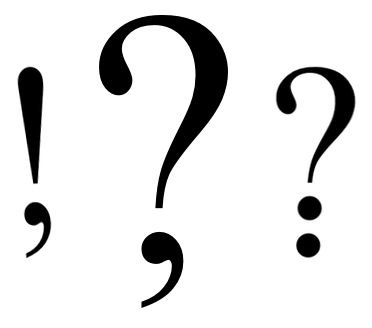Spend any amount of time thinking about the way we communicate, and you can probably arrive at the conclusion that spoken language and written language are two fundamentally different forms of expression. The tone of written language has to be carefully crafted out of precise words, selected to invoke a particular feeling, but when you’re speaking, all you have to do is like, change the way you say it a little bit. The inflection of speech conveys a lot of meaning beyond just what words have been said.
Despite how different they can be, spoken language still has a big impact on the way we write. Written text is the most fluent when it mimics the natural cadences and inflections of speech. This is most easily achievable with punctuation, as each mark carries with it a certain set of rules that affect the sounds of the words around it. Combining the right punctuation with the right words can yield most possible rhythms and intonations, but some of the more niche cases are less achievable. While actually changing the English language wouldn’t be practical, here are some hypothetical punctuation marks that could help when you encounter these situations.
Introducing the question comma: You might be wondering, “When would you ever need to use a question comma, because question marks already cover any relevant cases?” The question mark represents the upwards intonation at the end of a question, so placing it at the end of that sentence feels awkward. The question was earlier, but the question mark can’t be put there without ending the sentence. If you split that sentence in two, you get, “When would you ever need to use a question comma? Because question marks already cover any relevant cases.” It sounds better, but the flow of the idea is still disrupted, and now sounds like you’re trying to answer the question you just asked. If you use a question comma, you get “When would you ever need to use a question comma[?,] because question marks already cover any relevant cases.” The flow of the sentence is much better, and it’s clear that a rhetorical question is being asked and then explained in the same thought. It allows you to restrain the question to a single clause but elegantly continue the idea. This could also be used with the exclamation point, since its primary function is also to set the tone of a clause. Why not take it further though, and expand these marks to uses other than just with periods and commas? For example, I recently found myself wanting to be able to use a question colon when asking about items on a list. You could also apply this to announcing a list with excitement, and use an exclamation colon. The possibilities are boundless[!,] except for the limits of our keyboards and our imaginations.
Until this point, I’ve been referring to written language of a particular type, with wording geared towards precision, and punctuation as the primary organizational tool, but it’s important to note that not all writing has to be that way. One example that stands out in particular is text language. Since there’s a more real time back and forth, precision becomes less important, as ambiguities and misunderstandings clear up as the context evolves. It’s instead aimed at efficiency. Ideas are communicated quickly and easily, and punctuation becomes merely a suggestion, loosely guiding the flow of the words, if it’s used at all. Text language emulates spoken language far more closely than it does any other written style, and even abbreviates ideas into acronyms and short-hands beyond what we could speak. If texting is the intersection between the two forms of language, is it the right place for these niche punctuation marks to reside? Maybe. Is the added fluency worth the lost efficiency? I can’t say. It isn’t my place to dictate how you communicate, but remember that you don’t need to limit yourself to what’s already established. Try something new.


































